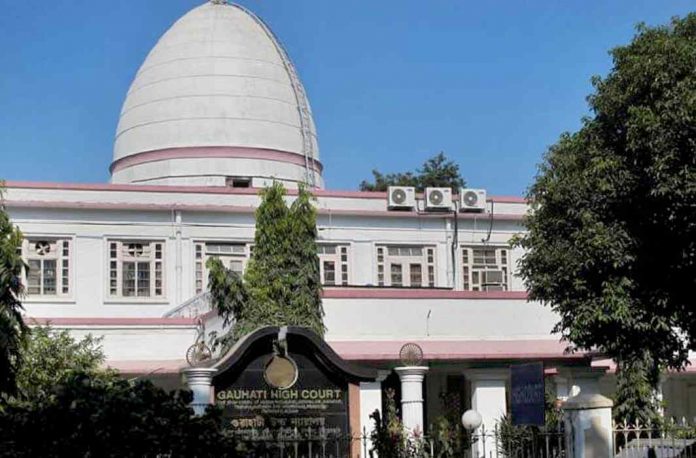The Gauhati High Court has directed the respondents to file an affidavit bringing updated facts on record to indicate the manner in which the provisions of the statute has been given effect to in the context of the grievance related to transgenders.
The Division Bench of Justice Suman Shyam and Justice Susmita Phukan Khaund heard a Public Interest Litigation (PIL) filed being aggrieved primarily on two counts.
Firstly, although the constitution of the Transgender Welfare Board had been notified by the Government in May 2020, the Board has not been made fully functional till date due to the lack of infrastructure including a functional office.
Secondly, the authorities have failed to take steps for setting up of State Level Transgender Cell as per the requirement of the statute.
According to Swati B. Baruah, the counsel for the petitioner, the failure on the part of the departmental authorities to initiate appropriate steps in such matters have resulted in violation of the statutory rights of the beneficiaries under the Transgender Person (Protection of Rights) Act, 2019 and the Rules framed thereunder.
Responding to the above, D. Nath, Senior Government Advocate, Assam, submitted that the matter was earlier looked into by the Ministry of Social Welfare, Govt. of Assam but after the bifurcation of the department and creation of a new Ministry in the form of Ministry of Social Justice and Empowerment, the matter is now being looked into by the new Ministry. According to Nath, all possible steps have already been initiated to redress the grievance of the petitioner but due to the creation of the new Ministry and transfer of subjects, there has been some delay in giving effect to some provisions of the statute.
R. M. Das, departmental counsel, supported the stand of the Senior Govt. Advocate, Assam and submitted that although the Ministry is keen to implement provisions of the statute, yet, due to infrastructural reasons, certain steps could not be initiated.
According to Das, the Directorate of Social Justice and Empowerment itself is without a permanent office and therefore, it is not in a position to make arrangements for office space, as demanded by the petitioner. Das, however, submitted that the meetings of the Board can take place by using the existing infrastructure available at the disposal of the Ministry.
The Court held that the above response of the departmental counsel is not found to be satisfactory primarily for two reasons.
Firstly, dehors the questions of infrastructure, the High Court does not find any material to indicate that the Transgender Welfare Board constituted more than two years back has been made fully functional by the Ministry. Secondly, the explanation for failure to set up a State Level Protection Cell is also found to be wholly unsatisfactory.


